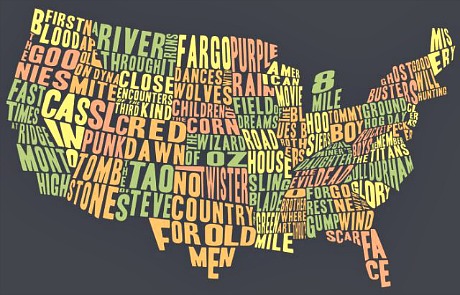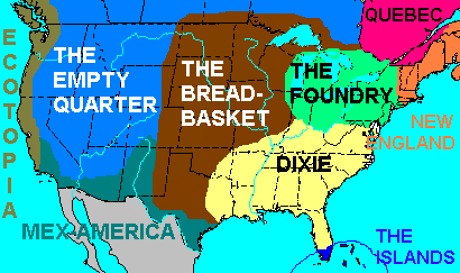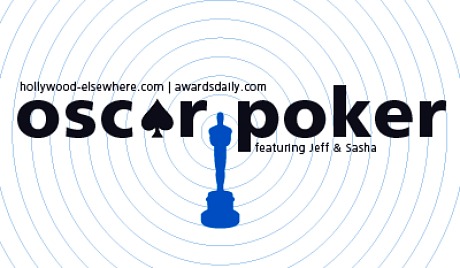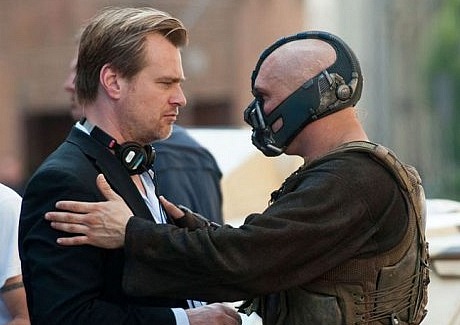I was thinking a day or two ago about how John Frankenheimer‘s The Train (’65) — the last Hollywood-produced action flick shot in black-and-white, and a reminder of how wonderfully alive and detailed monochrome could look — really needs to be remastered for Bluray. Jean Tournier and Walter Wottitz‘s cinematography is lighted and captured to perfection — it’s just heavenly, and I don’t what the hangup is. The last MGM Home Video DVD of The Train was created 13 years ago.
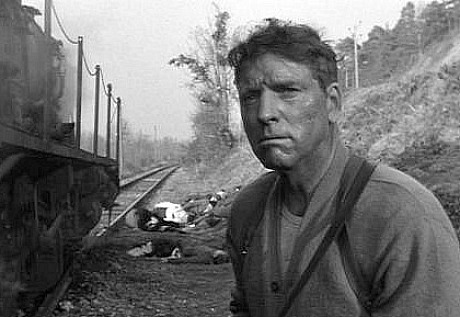 The Train
The Train at its proper aspect ratio of 1.66 to 1.
The Train is especially valued by me because of its 1.66 aspect ratio, which the 1.85 fascists….okay, I’ll restrain myself. One hopes that if and when The Train is Blurayed the fascists will consider the fact that all United Artists releases (which this was back in ’65) were projected theatrically at 1.66, and that The Train was issued on laser disc and DVD at 1.66. Anyway, I was imagining how I would feel if and when this Bluray were to be somehow Furmaneked, and how angry I’ll be if and when this occurs.
But today this anger went away when I read a nearly month-old article by Kyle Westphal about aspect ratios (called “Invasion of the Aspect Ratios“) on the Northwest Chicago Film Society’s website. It’s an an intelligent, perceptive, fair-minded essay, and it says some things that even the 1.85 fascists might agree with. Well, you never know. But I know it made me realize that at least some people out there get what’s really been going on with the aspect-ratio battles.
Here’s part of what Westphal said — fascists should consider the boldfaced portions:
“In some sense, it’s only natural that home video releases stir [highly emotional] feelings. DVD and Blu-ray versions tend to fix a film in time and space; the image is immune from the scratching and cinching that occasionally afflict film prints, but it’s also removed from the realm of interpretation and manipulation available to the projectionist or archivist. There’s no adjusting the focus or framing after a studio QC tech has ruled the matter closed.
“Magnificent Obsession is either 1.37:1 or 2:1, but not both. The recent vogue for 16:9 HDTV sets, which approximate fairly closely the 1.85:1 theatrical ratio, often dictates the ultimate answer, just as decades of 4:3 sets once assured a very different outcome, with the left and right edges panned-and-scanned away for cropped consumption. For asset managers and telecine operators alike, the question of the proper aspect ratio can yield but one valid answer.
“Longtime fans often dispute this answer. They recall television broadcasts or 16mm prints seen in decades-old campus film society screenings and the widescreen versions simply contradict the emotional and aesthetic unity they found in these open-matte prints. Trade papers and studio records may dictate a wide aspect ratio for a given film, but the fan holds onto details at the far reaches of the frame that look artistically indisputable.
“In some sense, this is the ultimate form of auteurism: the director intended things that the entire motion picture industry, from mogul on down to projectionist, conspired to cover-up. The great auteurs defiantly went about their business anyway.
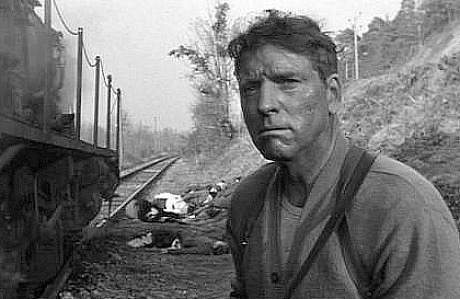
The same shot Furmaneked at 1.85.
“What’s the right answer? We can argue about intent all day, but whose intent matters here in the first place? Is it what the studio dictated in their press book or what the lab printed in the leader? Is it what the director wanted on screen or what the cinematographer saw in the viewfinder? And what if that intent is deliberately confused or clouded? Famously, Paramount produced Shane in 1.37:1, but released it with a suggested ratio of 1.66:1 at the dawn of the widescreen era, fearful that its backlog product would look antiquated in wider pastures.
“Rather than jockey for the ‘correct’ aspect ratio for a given film, we should respect the multiplicity of possible answers suggested by material circumstances of the exhibition sector.
“During the transition to widescreen and again today in the waning days of the multiplex, the intended ratio (whether conjectured, intuited, or proven on paper) often ran up against the constraints imposed upon (and often by) the exhibitor. In the tumultuous year of 1953, studios weighed and hedged against various technological innovations (widescreen, 3-D, curved screens, magnetic sound, etc.) and announced new in-house aspect ratios before the autumn unveiling of Fox’s The Robe in Cinemascope and high-fidelity, four-track surround sound.
“Until the Society of Motion Picture and Television Engineers standarized non-anamorphic American productions to 1.85:1, the studios released product in a variety of ratios. RKO and Paramount preferred 1.66:1. Disney and United Artists suggested 1.75:1. Columbia and Warner Brothers put out 1.85:1 product. Universal-International released 2:1. These prints often looked identical to the naked eye, with the different ratios being entirely dependent on the proper lens and aperture plates for the projector. Surely these ratios prevailed at studio screening rooms but were these dictates respected anywhere else?
“Cinemascope was itself an expensive proposition, with many showmen balking at the high cost of equipping a theater for magnetic sound. Did exhibitors, historically disinclined to spend a cent more than necessary to get an image on screen, invest in equipment for all these variant ratios, especially when the anamorphic Cinemascope was the only one that carried any name recognition with the public?
“Paramount allowed its VistaVision prints to be shown at a number of different ratios, as the conceit of the brand had more to do with high-quality origination on an enlarged camera negative than with the final shape on screen. Anyone who’s seen an original 35mm IB Technicolor print from VistaVision elements will likely agree with Paramount’s reasoning.
“Aside from the investment in lenses, plates, and masking controls for these competing widescreen ratios, what of the inherent limitations of theater architecture? Whether working in former legitimate houses or purpose-built cinemas, the exact ratio on screen was often determined by relatively pedestrian factors like the throw distance between the projectors and the screen, the focal lengths of available lenses, the shape of the proscenium, the constraint of the curtain, and the pictorial sensibility (or lack thereof) on the part of the management. “


